Which Credit Cards Use Experian?
- January 28, 2024
- 11 min read
-
1127 reads
If you’re looking up “which credit cards use Experian,” you probably want to use your Experian credit score to boost your chances of getting a new credit card.
Many people think this way, hoping their Experian score will help them get approved. But remember, credit card companies often don’t tell you which credit bureau they check, and they might not just use Experian.
Here’s What’s Important:
- Credit Bureaus Vary: Credit card issuers may check your credit score from different bureaus like Experian, Equifax, and TransUnion. The specific bureau they use can vary depending on the card, your application, and even your location.
- Small Score Differences Aren’t a Big Deal: Minor variations in your scores from different bureaus usually don’t significantly impact your credit card application. Creditors consider more than just one score.
- Big Score Gaps Need Your Attention: Large discrepancies in your scores across different bureaus could indicate errors or fraud on your credit report. It’s important to investigate such differences promptly.
- Focus on Good Credit Practices: Instead of worrying about which credit bureau a card issuer will check, prioritize maintaining good credit habits. This includes timely payments, low credit utilization, and having a mix of credit types.
Experian and Its Role in Credit Card Applications
Experian is recognized as one of the three leading credit bureaus in the United States, sharing this distinction with Equifax and TransUnion. In the realm of credit card applications, it’s a frequent practice for issuers to consult your credit report from Experian as part of their decision-making process.
It’s important to note, however, that Experian itself does not issue credit cards. Rather, their role is to collect and maintain credit information, which they provide to credit card companies and other lenders.
These financial institutions then use this data to assess the creditworthiness of applicants. Therefore, while Experian plays a crucial role in the credit evaluation process, the decision to issue a credit card, along with the terms of the card, is entirely up to the individual credit card issuers.
Credit Cards That Use Experian
A lot of credit card issuers turn to Experian for evaluating how creditworthy you are when you apply for a card.
Big players in the credit card market, like American Express, Bank of America, Capital One, Chase, Citi, Discover, and Wells Fargo, often check with Experian.
They might use Experian to go through your identity, your credit history, and your credit score. However, it’s not certain that they’ll only use Experian.
Other, perhaps less well-known, credit card issuers that might consult Experian are Upgrade, Total, BB&T, and TD Bank.
Upgrade Cash Rewards Visa®
The Upgrade Cash Rewards Card offers:
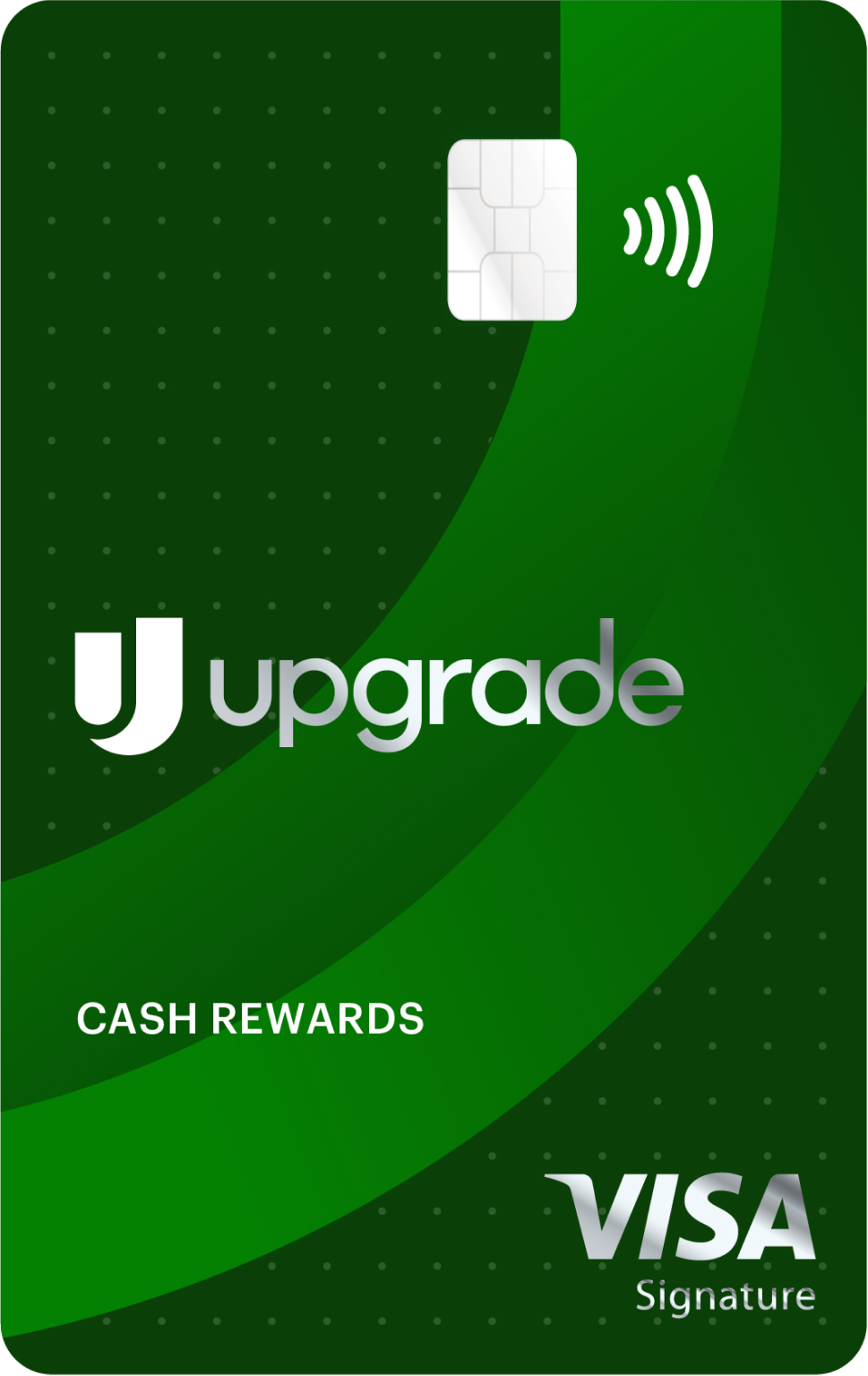
- 1.5% Unlimited Cash Back: Earn on every purchase.
- $200 Welcome Bonus: For opening a Rewards Checking Plus account and making 3 debit card transactions.
- No Annual or Late Fees: Cost-effective for users.
- Credit Line Options: Ranges from $500 to $25,000.
- Fixed-Rate Monthly Payments: Combines credit card flexibility with personal loan predictability.
- Extra Cash Back: Up to 10% through Upgrade Shopping powered by Dosh® on eligible purchases.
- Visa Network Access: Accepted widely with contactless payment technology.
This card is ideal for those seeking consistent cash back and additional savings without annual fees.
Destiny® Mastercard®
The Destiny® Mastercard® is worth considering if you’re looking to build your credit score.
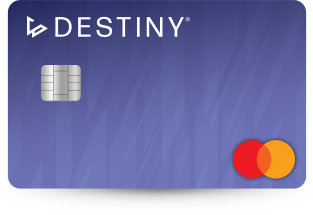
This card has an annual fee of $75, with a 25-day interest-free period.
Although this card doesn’t have a rewards program, it’s a good option if you have less-than-perfect credit and want to improve your score.
Pre-qualification requires only a soft credit check so your credit won’t be impacted.
Chase Freedom® Flex Card
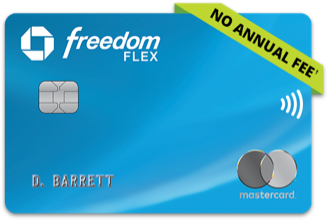
If your goal is to maximize cash-back rewards and you prefer cards that typically use Experian for credit checks, the Chase Freedom® Flex Card is an excellent choice.
This card offers an enticing cash-back program where you can earn 5% back on up to $1,500 in purchases in various changing categories every quarter, provided you activate this feature.
Additionally, for all other purchases, you accumulate 1% cash back. An added advantage is that there’s no annual fee, making it a cost-effective option for those watching their budget.
Discover it® Cash Back Card
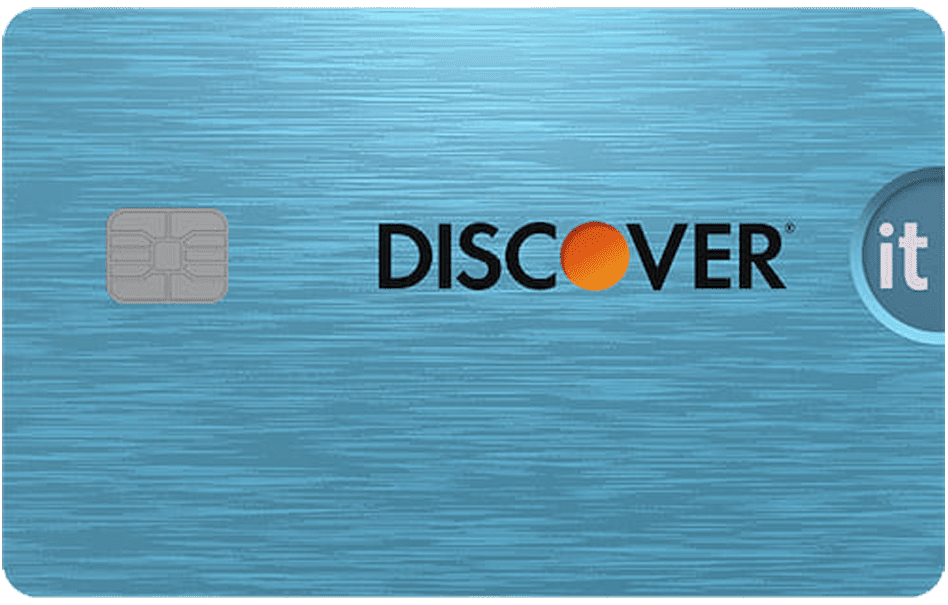
The Discover it® Cash Back Card offers a rewarding cash-back program, especially suited for regular spenders at grocery stores, restaurants, and gas stations. With this card, you can enjoy a 5% cash back on purchases in these categories every quarter. Plus, it offers a baseline 1% cash back on all other purchases automatically, ensuring rewards on all your spending.
A unique feature of this card is the cash back match at the end of your first year. This means Discover will match all the cash back you’ve accumulated during your first year, dollar for dollar, automatically added to your account.
In terms of APR, the Discover it® Cash Back Card starts with a variable rate of 16.49% but offers an introductory 0% APR for the initial 15 months, which can be particularly advantageous for new cardholders planning significant purchases or looking to transfer balances.
Chase Sapphire Reserve®
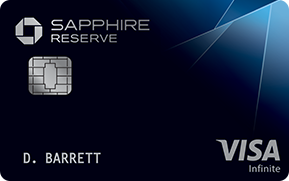
The Chase Sapphire Reserve® card is ideal for frequent travelers, offering 5x points on flights and 10x points on hotels and car rentals after spending the first $300 annually through Chase Ultimate Rewards®. Cardholders also benefit from up to $300 in automatic statement credits every year.
However, it comes with a variable APR of 21.49% – 28.49% and an annual fee of $550, plus an additional $75 for each extra cardholder.
Handling Minor Differences in Credit Scores
Uniform Scoring Across Bureaus: Although there might be slight discrepancies in your credit scores from various bureaus, they generally reflect a similar trend. This is because the bureaus follow similar principles in assessing your credit history.
Credit approvals aren’t solely based on your credit score. Lenders also weigh factors like your income and how much debt you carry. Thus, minor score differences across different bureaus typically don’t heavily influence the decision.
Responding to Major Score Disparities
Indicators for Action: A substantial variation in your credit scores from different bureaus is a cue to investigate for potential errors or unauthorized activities in your credit history.
It’s crucial to regularly review your credit reports from the three major bureaus. Doing so helps you safeguard your financial wellness and identify any discrepancies or unusual activities swiftly.
Read More: Why Did My Credit Score Drop: 9 Reasons and How To Fix It
Perks of Credit Cards that Use Experian
Opting for credit cards that align with Experian can be advantageous in several ways:
- Building a Strong Credit Profile: Using a credit card reported to Experian helps in shaping a robust credit history. Experian’s comprehensive reporting can reflect responsible credit usage, which is crucial for a healthy credit profile.
- Enhancing Loan Approval Odds: Since many lenders rely on Experian for credit checks, maintaining a good score with this bureau can improve your eligibility for future financial products like loans and additional credit lines.
- Effective Credit Monitoring: A card linked to Experian facilitates regular monitoring of your credit activities. This can be essential in quickly identifying and addressing any suspicious transactions or inconsistencies, thereby safeguarding your financial integrity.
Choosing the Right Credit Card with Experian
Selecting Your Card Type
- Rewards Cards: Ideal for those who love perks like airline miles or shopping points.
- Cash-Back Cards: Best if you prefer getting a percentage of your spending back.
- Balance Transfer Cards: Suitable for consolidating debt under a lower interest rate.
Key Takeaway:
Consider what benefits align with your lifestyle – travel perks, cash rewards, or debt consolidation.Understanding APR and Fees
- APR (Annual Percentage Rate): This is the cost of borrowing on the card. Rates usually range from 15% to 25% for purchases.
- Cash Advance APR: Higher than regular APR, around 24% to 30%, applied when you take cash from your credit line.
- Penalty APR: Up to 29.99%, applied if you miss payments.
- Annual Fees: Higher credit limits might mean higher fees, but some cards waive these fees for the first year.
Key Takeaway:
Lower APRs and fees are better, but consider them in context of the card’s benefits.Smart Use of Credit Cards
- Based on Your Credit Score: A good score could mean better terms; a lower score might require more caution.
- Comparing Offers: Look beyond just the APR – consider rewards, fees, and other features.
- Reading the Terms: Understand all fees, the grace period, and penalties.
- Responsible Usage: Make payments on time and keep balances low to avoid high-interest charges.






